Pre-negotiation due diligence serves as a critical foundation for successful B2B negotiations, especially when facing aggressive tactics from counterparties. By investing time in thorough research and preparation, negotiators can develop robust strategies that help maintain leverage throughout the negotiation process while working toward mutually beneficial outcomes.
Building a solid foundation through pre-negotiation research
Comprehensive preparation is the bedrock of successful B2B negotiations. Research shows that the fastest-growing companies invest significantly in their sales function, with many achieving up to 10% revenue growth within the first year after prioritizing negotiation excellence. Strategic communication forms the foundation of negotiation success, requiring business acumen and meticulous planning before any formal discussions begin.
Analyzing competitive market positions
Understanding the competitive landscape provides crucial context for effective negotiation strategies. This analysis should include examining your company’s SWOT (Strengths, Weaknesses, Opportunities, Threats) relative to competitors, identifying your strategic value proposition, and determining realistic deal objectives. The process must incorporate valuation strategies such as DCF models and comparable company analysis to establish baseline expectations. Small price improvements can dramatically impact profitability – a critical insight when planning your position, as even a 1% price discount may decrease operating profits by 8-10%. Transparent communication becomes particularly valuable when dealing with companies lacking previous experience, with 84% of clients considering transparency key according to data available on https://puntolog.com/ regarding B2B transactions.
Gathering intelligence on counterparty negotiation history
Knowing your counterparty’s past negotiation behavior provides strategic advantages when preparing for discussions. This intelligence gathering should focus on identifying their typical negotiation style (competitive, collaborative, accommodative, or avoidant), previous concession patterns, and key decision-makers within their organization. Creating a concession matrix categorizing potential trade-offs as sacrifices, bargaining chips, battlefield concessions, or walk-away points helps prioritize what you’re willing to give up. When facing aggressive tactics, this preparation proves invaluable – studies show aggressive approaches in B2B negotiations can destroy trust and undermine long-term business relationships. Understanding power dynamics also requires knowing your BATNA (Best Alternative To a Negotiated Agreement) and developing persuasion techniques like anchoring and presenting alternatives that align with your strategic objectives.
Neutralizing aggressive tactics with strategic preparation
 Pre-negotiation due diligence forms the foundation of successful B2B negotiations, especially when facing aggressive counterparts. Strategic preparation empowers negotiators to anticipate pressure tactics and develop effective countermeasures. Research shows that 84% of clients consider transparency key in professional services negotiations, making thorough preparation essential for building trust even when facing hostile tactics. By mastering preparation techniques, negotiators can maintain control and achieve favorable outcomes while preserving business relationships.
Pre-negotiation due diligence forms the foundation of successful B2B negotiations, especially when facing aggressive counterparts. Strategic preparation empowers negotiators to anticipate pressure tactics and develop effective countermeasures. Research shows that 84% of clients consider transparency key in professional services negotiations, making thorough preparation essential for building trust even when facing hostile tactics. By mastering preparation techniques, negotiators can maintain control and achieve favorable outcomes while preserving business relationships.
Recognizing common pressure techniques
Aggressive tactics in B2B negotiations can destroy trust if not properly managed. These tactics often include extreme anchoring, where the counterparty sets an unrealistic opening position to shift the negotiation range. Other common pressure techniques include arbitrary deadlines, intimidation, good cop/bad cop routines, and limited authority claims. Skilled negotiators use active listening to identify these patterns and avoid reactive responses. More than 90% of negotiation tactics are predictable with proper analysis, allowing prepared negotiators to maintain composure when pressure is applied. Through diligent BATNA (Best Alternative To a Negotiated Agreement) analysis before negotiations begin, teams can establish clear walk-away points that prevent capitulation to aggressive demands.
Developing counter-measures through scenario planning
Strategic scenario planning provides negotiators with ready responses to aggressive tactics. This preparation involves creating a concession matrix categorizing potential trade-offs as sacrifices, bargaining chips, battlefield concessions, or walk-away points. Effective negotiators never make free concessions and always ask for something in return. Pre-negotiation SWOT analysis helps identify leverage points and vulnerabilities on both sides of the table. Business acumen proves crucial during this planning phase: understanding that even small price discounts can significantly impact profitability (a 1% price reduction may decrease operating profits by 8-10%). Scenario rehearsals allow teams to practice responses to predictable pressure tactics, reducing emotional reactions during actual negotiations. Documentation of verbal commitments and observation of non-verbal cues further strengthen a negotiator’s position when facing aggressive counterparts. This strategic preparation enables negotiators to transform potentially confrontational situations into opportunities for win-win resolutions that preserve business relationships.

